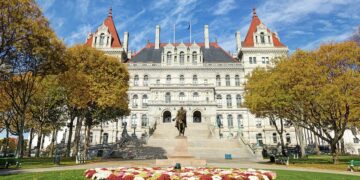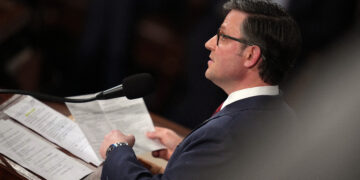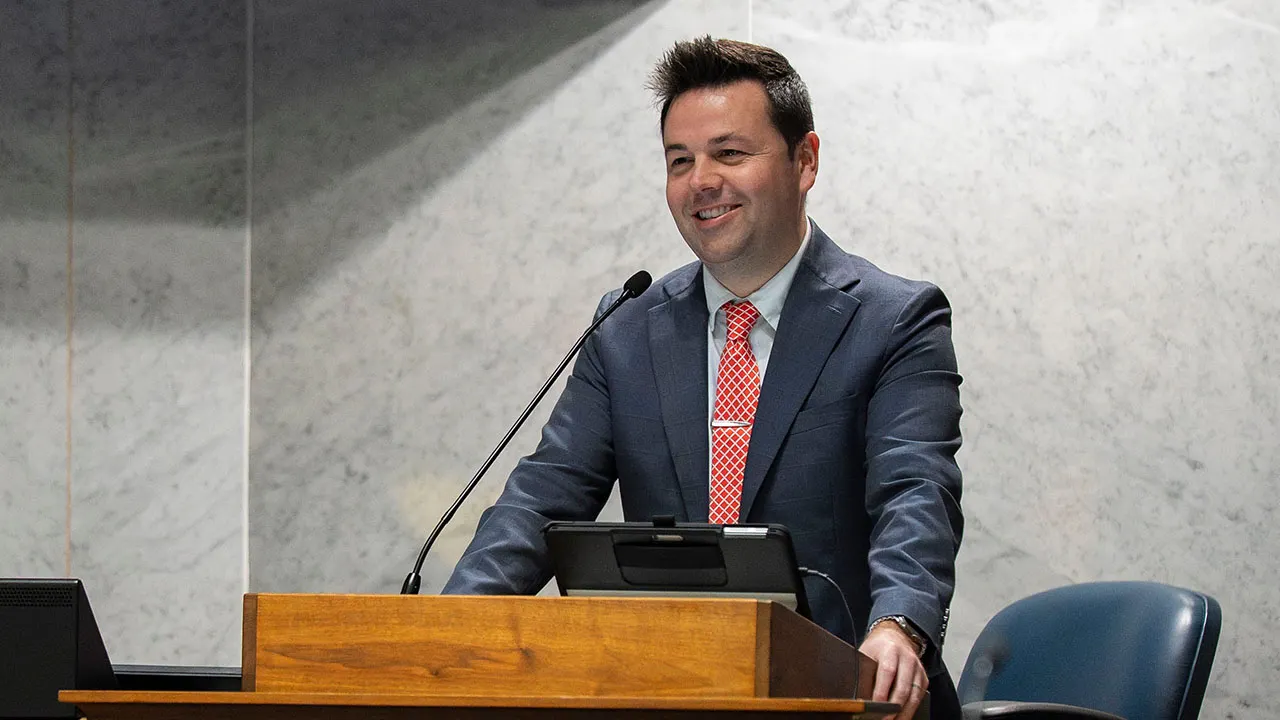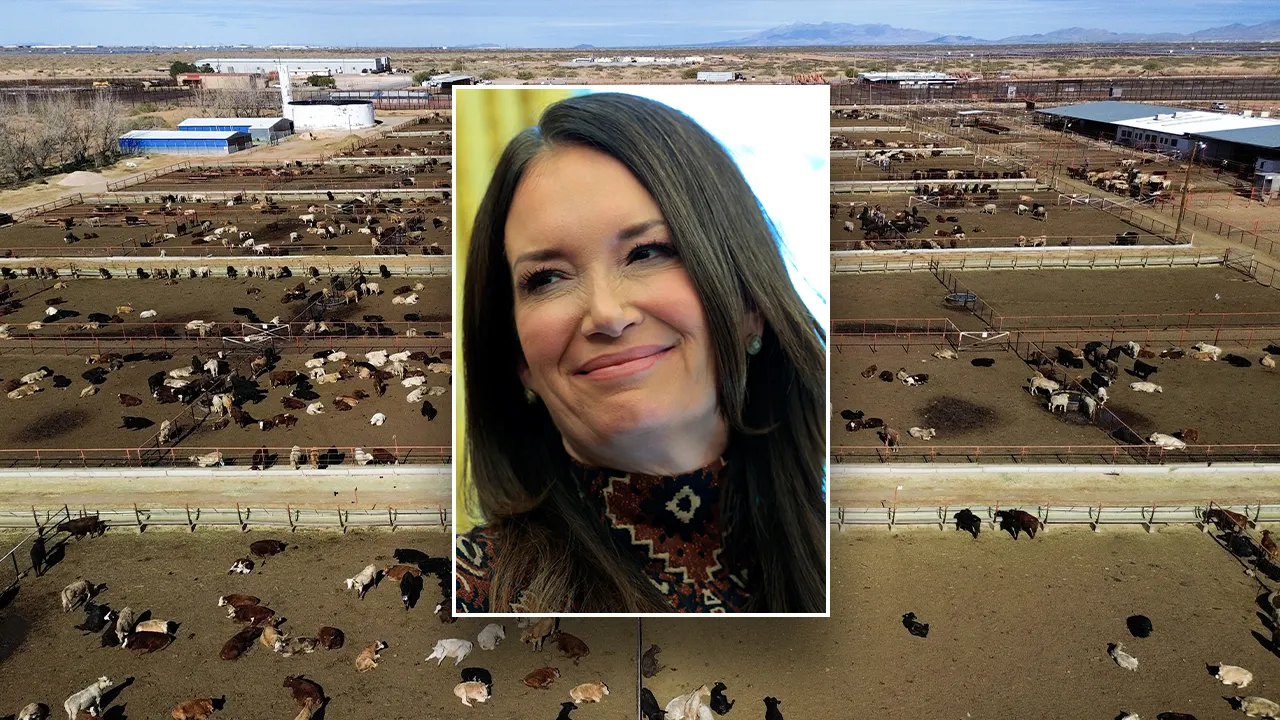Public has soured on answering questions calls or doorbells and instead of being available at a single point of contact people have become increasingly mobile which makes traditional polling more challenging today people are expressing their opinions and habits through mobile and internet Technologies including smartphones and social media that Avalanche of information is making
Possible new methods to explore what the public is thinking Thank you today data is available everywhere credit card information loyalty card information demographic information and Community organization information think about the things you sign up for think about the events you go to and when you click that little box that says I have read and agreed to the terms
Of service that is contractual several screens of stuff that you didn’t read nobody ever reads it it wouldn’t really matter if you read it anyway so that means we’ve got information from all over the place and that’s actually what makes it quite valuable many people give Google their email data
Via Gmail their video data via YouTube their physical location via Google maps so when you connect all that data together it’s remarkable the intimate picture it paints of the individual which I actually think eclipses our own memory and that we forget all the places we go to The challenge is knowing how to extract meaningful information from what looks like random noise that’s where applied artificial intelligence known as AI presents both promise and risk while dystopian science fiction dreams up worlds where machines rule over humans AI is more commonly understood by its Engineers as the
Ability of a machine to learn and think they consider it a human-guided tool that learns by digesting massive volumes of data like social media and then identifying patterns in the noise what if there was an AI that could use those patterns to predict how humans would behave in the future like
Predicting the outcome of an election the campaign for the next Canadian federal election has just kicked off while prime minister Justin Trudeau’s Liberal Party copes with a Justice Scandal and the ouster of two ministers the conservatives new Democrats and block quebecois all have new and untested leaders despite a tight
Six-week campaign the parties are slow to outline their platforms it’s unclear if voters will make their choices based on the issues the party or the leader in Canada’s capital Ottawa a small startup is using AI to predict the upcoming election people are calling this the Seinfeld election really because it’s about not
Being quoted yeah yeah although that sounds like every election to be honest with you I feel like people with people said to me is this is like the first one where they’re actually looking at the policies not the leaders the Two Front Runners they they mean nothing to me
Yeah it’s really about who do I think is going to do the best job for the economy for the environment and you know I heard a lot of people obviously the economy is always the top for everybody um but who has the best policies physicist Kenton white and accountant Aaron Kelly co-founded Advanced
Symbolics or ASI in 2015. the market research company uses public data in AI to forecast consumer attitudes you know in the era of Cambridge analytica and all that people think it’s just some sort of voodoo science like we have a shame in making things happen I want people to understand that nobody’s
This is just math and it’s science like anything else and it’s probably it’s probabilistic it’s statistics just like it’s always been yeah except it’s being done by Polly instead of by phone operators they can use a similar approach to predict political opinions before it’d be kind of hard to get
Information about millions and millions of people and apply statistical physics to it but now I’ve got Facebook now I’ve got Twitter how do I use that though they don’t work for either political parties or news outlets Kelly and white saw the election prediction game as a way to promote their research method
Think about when we do traditional market research how many times we interfere with the subject with people as we’re studying them we interfere by asking them to participate we interfere in the result by asking a question and how we phrase that question so our whole idea we saw that with social media was
Came a great opportunity to observe people in their natural environment and aren’t you going to get much better policy and a much more utopian society if you know exactly what the people in that Society want and I was inspired by science fiction growing up like as a mouse Foundation series where you can
Use physics and statistical physics on people and populations and map out the whole course of the the Galaxy uh I was quite disappointed when I learned that that’s not really possible the explosion of social media data offered white a potential Treasure Trove he could apply statistical methods from
Physics to Crunch what might seem to others like messy and unusable sources of data it was the birth of the AI that ASI calls poly Polly it was short for politics so that’s we just happened to call her we’re going to call her Polly we didn’t put any thought into it except politics
You know Paulie is made up of a number of different parts little programs that are crawling the web and collecting information those programs called algorithms are a set of instructions to perform a specific task you’ve got an algorithm to say when do you pick someone when you don’t little algorithms that analyze
That person and come up with I think the person’s male or female or rich or poor young or old or black or white algorithms that allow us to find people that are talking about the topic we want to measure if I showed you any one of these algorithms and how
It worked chances are you’d say that’s pretty simple it’s when you take dozens and dozens of put all these things together that something more complex emerges she’s using more data than me or you or pretty much anyone here could understand in a lifetime but what is it that makes Paulie intelligent
Notice I didn’t say sentient I said intelligent right so she is intelligent because she can grasp Concepts mathematical Concepts and see patterns in people that we can’t see ourselves but that description makes critics of AI uneasy the ai’s method comes across as a black box to Outsiders which leaves non-ai experts at a
Disadvantage to challenge the ai’s inner workings or its conclusions in the face of Skeptics ASI saw the brexit referendum in June 2016 as a way to test their algorithm [Applause] citizens of the United Kingdom were voting to remain in or leave the European Union traditional polls conducted almost daily
Revealed the country was split down the middle as voting day approached it became clear that undecided voters would likely determine the country’s fate Meanwhile Paulie was sifting through UK Twitter data to predict users opinions without contacting them directly Paulie was seeing remain right up until three days before the actual referendum we had 52 voting for remain 48 voting for leave just like everyone else in the world then there was assassination of Joe Cox
Labor party MP Joe Cox who had been campaigning for remain was shot and killed by a far-right extremist on June 16 2016. three days before the referendum we wake up we check in with Paulie and suddenly Britain is going to exit the EU that it was different from what she had
Been saying every other day of the week and throughout this campaign I was worried because an assassination is a Black Swan event Black Swan event is a rare event one that my AI has never seen before and none of the elections that I had trained her on had there been an
Assassination assassinations are rare so we told her ignore the assassination of Joe Cox what is the result remain tested again Joe Cox is assassinated exit so what had changed what was she saying that everyone else in the world was missing The British pound plunged to a 30-year low and World stock markets convulsed on the news that the majority of UK voters want out of the European Union the second largest economy in the world Holly observes things that we wouldn’t even think to observe we didn’t ask her
To observe these things well we started going through David Cameron had done a many press conferences during that time and there was one line something he had said it’s right that we’re suspending campaigning activity in this referendum and everyone’s thoughts will be with Joe’s family and with her constituents
At this terrible time she noticed that throughout the the year that she was observing people if people came online and they said I’m thinking of voting for an exit if they had a network of people around them friends and family who calmly talked to them about why we shouldn’t have a
Remain and what the consequences would be over time that network was effective in winning these people over to remain if they kept the dialogue going but once people weren’t talking anymore a certain percentage of those undecided people would then go exit based on what she had noticed in the past so she
Applied that algorithm like she got it bang on to better understand Paulie’s method it’s helpful to look at what she shares with traditional polling one way of measuring public opinion is by interviews brief interviews are called polls a few people are carefully selected as samples of the important groups of the General Public
For decades pollster successfully reached people by landlines direct mail or knocking on doors you get 80 response rates all all calls were to landlines you didn’t really have any cell phones and people love to participate in surveys and you know getting it wrong getting an election wrong would be like
You know falling out of a boat and missing the water that’s the third knock and the house looks dark yes they’re not home but in the last 30 years landline use and pull response rates have plummeted we phoned a landline in any house you’re much more likely to get an older woman
Than you’re to get anybody else Millennials if you want to get Millennials you’re probably not going to get them using landline you’re probably going to get them using cell phone but as as likely you’re likely to get them online traditional pollsters needed to diversify their methods to reach different audiences what you’re trying
To do is represent the political Marketplace the important political Marketplace the voting population as accurately as you can so what you need to have is good coverage of all of these different groups of the population and then what you do is you try to look at them in aggregate to cover the Canadian
Population in 2019 folster Daryl Bricker combines landline pools with cell phone pools and online surveys but Paulie’s AI takes a different tack as our population gets more diverse we actually need to have a bigger sample I mean Canada is very different now than it was in 1970
Or 1959 when we first started doing phone polling but we haven’t really evolved the science since the 1950s so we’re still getting the same sample sizes we’re still approaching the science in the same way even though the population has changed a lot now with social media finally we have the
Opportunity to evolve this science for the first time in 50 years traditional polling has struck out on several recent election predictions we’re going to win the lighthouse we’re going to take it back and perhaps most famously in the 2016 U.S presidential election pollsters overwhelmingly predicted Hillary Clinton to beat Donald
Trump if the lines are long tomorrow please wait Trump’s win demonstrated that pollsters had missed the boat they predicted the popular vote but missed the tight local races in swing states which delivered Trump and Electoral College Victory clearly their models were just completely off the actual percentage of the vote predicted by the polls is actually what happened
But we weren’t measuring the Electoral College obviously you go through a you know a Dark Night of the Soul whenever these kinds of things happen While it’s too expensive and inefficient to pull each riding regularly by traditional methods social media’s huge scale makes that possible with AI talking about politics on social media or all your opinions on social media is now kind of the norm like that’s become a normal way to communicate in the same
Way that people used to have I think long conversations on the phone frequently too now of course back in the day you couldn’t just tap people’s phones you had to call up and ask them about opinions but but now the thing about social media that’s interesting is when people are communicating their
Opinions on social media uh often they’re doing it in a form that is public and that allows us to see what they’re saying and to then uh derive their their opinions from that but not all social media platforms have data that are relevant to White we use a
Sample for data source depending on the problem that we want to look at we have found that for elections we get the strongest signal from Twitter many pollsters and social scientists question the value of Twitter data platforms like Twitter and Facebook is basically a group of self-selected people because not every Canadians are
On social media and even if they’re on social media not all of them use it to discuss politics so again basically you’re getting a slice of a smaller slice of the public I think it’s like 12 to 15 use Twitter for news 20 use Twitter overall in my own
Belay understanding of it I tend to think about it’s elite journalists and like high engaged super participants that are on Twitter so not everyone is on Twitter let’s take the low number 17 that is still a whole lot bigger than the current nine percent or less you get on dials 17
Of a country of 36 million is about 7 million people that we have access to white thinks that an AI can sift through the large but typically young and urban user base of Twitter in Canada and nonetheless make forecasts that are representative of the entire population less than three weeks to go until
Election day and I know at some point your artificial intelligence polling system comes to a conclusion about what you think is going to happen on the 21st of October too early still I presume it’s too early what bodes well for Mr Trudeau is that the Liberals have consistently
Since the the start of this campaign been in first place first place in the popular vote or total vote I guess as we call it Canada or seat count seat count so that’s the difference okay good we’re doing each individual riding so and that’s as we saw in the Ontario election
It makes a big difference just because you’re leading in the total vote count in the polls doesn’t mean you’re going to win exactly because vote efficiency yes is what was where it’s at in a first post past the post system that’s right if you talk to most people that work
With data from lots of people they will say I want to collect everything I can everything everyone is saying on Facebook and Twitter and Reddit and look at it all most critics assume ASI must draw on what is called the Twitter fire hose if so white would need a way to filter the
Huge volume of real-time data and collect only the data useful to predict elections given the magnitude of the challenge critics dispute White’s optimistic claims now if I all I did was tap it in that fire hose pull in that stream of data you’re going to get a very skewed distorted view
That’s why we don’t count tweets account our big idea is what the pollsters have been doing works that’s the secret sauce we make really really good samples of people in other words rather than trying to clean up the Twitter fire hose white claims that he’s found a way to bypass it
Before Paulie collects any actual data Paulie first builds a representative sample just like pollsters those who say that you can look at social media and get a representation of what’s happening at the riding level uh it’s an interesting concept we’re certainly exploring it ourselves would I bet the
Farm tomorrow and being able to do an election in which I predict every single riding correctly based on social media no first of all tracing people back to their ridings difficult it’s difficult to figure out where’s that account tweeting from you know that old joke the on the internet nobody knows you’re a
Dog well on Twitter nobody knows whether you are in China Russia or right here or in Toronto it’s very difficult to say yes for sure that account is coming from Canada a representative sample of Canadians must consist of actual Canadians white thinks he can confirm his Twitter users are legitimate we use
Information that people put on their account so we see that they’re in Canada great they say I’m in Canada so we verify that first test is most of your friends also in Canada look at your history look at what you’re talking about if you’re a Canadian probably talking a little bit about
Maybe hockey are other Canadian things maybe you’re talking about the cold weather for pollsters a sample is representative and random only when every member has an equal chance of appearing in the sample imagine that you had a whole big bowl of jelly beans and there was red ones and
Blue ones and green ones and yellow ones you don’t need to count every single Jelly Bean to figure out that there’s red ones green ones yellow ones whatever the colors were I said if you if all of them are are equally distributed across the entire big bowl of jelly beans if
You stick in your hand and you pull it out and you put down those jelly beans you should have some representation of what’s inside the jar if you do it 10 times you’ll have a pretty good representation of what’s in that jar not because the jar is getting smaller but
Because the samples become consistent so that’s what sampling is really all about historically full response respondingly requires a different paradigm there’s a game called Six Degrees of Kevin Bacon says I’ll pick a movie actor and try to link them back to Kevin Bacon in six hops
And you can play the same game on Facebook or Twitter you can pick any person any celebrity and track link yourself back to them and on average about between three and four connections to anyone in the world Paulie’s algorithm uses a mathematical computation to guarantee an average minimum of hops between the Twitter
Users it collects that’s how it defines virtual distance and Randomness between users but critics argue that still doesn’t address the lack of diversity among Twitter users I can account for that bias in Twitter I do it by saying this is what the census is it says how my distribution should be
And in the algorithm you say if it differs too much from what you expect then you have to wait until it balances so for example when I see that my sample is starting to get a little bit lopsided on young urban males just stop collecting younger than males you pause
And you don’t add any more than to your sample until you start to get older rural female so instead of looking like the majority of Twitter Paulie’s sample is limited to a mix of users that match the actual demographics of each writing white claims this addresses what critics
See as a tragic flaw in Paulie’s main source of data and that is the key algorithm behind poly if ever a bombshell hit a Canadian election campaign it happened this week photos of Justin Trudeau in black and brown face swirled a very complicated Brew of opinion in the country Aaron Kelly what
Is Paulie telling you about the Fallout from all of this it was a big bombshell and so Paulie sought Mr Trudeau’s numbers the number of seats the seat count Fall by 25 seats yesterday now he is rebounding this morning he’s up five so it’s a net of 20 seat losses but it
Knocked him from majority territory into minority territory jagmeet saying the NDP leader was the biggest winner yesterday we saw his his poll numbers go up so he has really he really Shone through this so how does an algorithm go from tweets to projecting a drop in seats what does a tweet actually mean
And what does it mean when we’re tweeting we know people are making jokes on the internet they’re ironic people are sharing more images and that creates challenges harder to interpret memes which are these shorthand Graphics they’re often pop culture references and so I’m like I don’t know what’s
Going on here and then I’m like well I don’t understand this and my computational power is a you know kind of a living breathing human what is this poor computer you know who’s gonna have to make sense of this according to White Paulie is not trying to interpret the
Meaning of tweets at all so my first few forays into election forecasting I ran the experiments and consistently what I found was just the plain old mentions outperformed the positive or negative sentiment every time Polly tracks a percentage of users in the sample who mention each Federal
Party then the AI Compares those results to historical opinion patterns the day after the blackface story broke mentions of the Liberal Party spiked in relation to the others without understanding the meaning of these tweets Paulie interprets these changes and mentions as a drop in projected seats for the Liberals
So I think polls are interesting because they’re a flash point in the past right they don’t predict the future they’re a moment in time in which you’re getting a flavor of what the public is sort of thinking about the AI collects data constantly that makes it possible to
Identify patterns in user activity over time compared to pools that are held less frequently one of the biggest most difficult things in polling when you’re doing these tracking polls is you see something happen for good or for bad and you say well that’s one piece of data is
It gonna you then you have to wait another day is that a real or was it just a blip and you’re always sort of in that in that feeling of how many points makes a trend is it one probably not is it two maybe three yeah four for sure but you
Know where is that point in order to identify a trend Paulie uses public pools as a reference point just patterns of user engagement all the times her selected Twitter users mentioned political parties then she Compares engagement with each party standing in the polls based on those relationships Paulie predicts if her
Data indicates a trend is stable or not people sometimes they’ll be angry about something about an issue and they might be angry about it in a moment of time but Paulie is able in a very unbiased way to see through that anger and say how long will it take The population to get over this anger and this hurt and will it Carry long enough to election day Paulie track’s Twitter engagement constantly that continuous stream of activity is referred to as longitudinal data by studying data in this way Paulie can identify patterns over time and then
Compare them to present activity it also means Paulie can look backwards in time at the data to re-examine unexplored trends for the Brown face blackface scandal I don’t think there is a single pollster that that question of if you saw a party leader in a questionable costume in their 20s
Would it change your opinion I don’t think anyone thought to ask that question so the wonderful thing about Paulie and that the longitudinal studies is that I can go back and I can get an accurate measurement of exactly how you thought a week ago or a month ago
And that’s something you can’t do a week later or two weeks later by asking a question I would suggest that perhaps Canadians don’t really care about black base as much as they perhaps profess to on social media um there was a lot of outrage and I would even call it performative outrage
On social media in particular but being like Oh my God I can’t believe this and it’s like really you can’t believe this you can’t believe that like I’m a you know a rich white guy from Quebec would have dawned blackface at a ritzy private school that had a party themed Arabian
Nights like I mean the party in and of itself without the blackface was racist Foreign how massive that story was when it broke a week and a half ago it has virtually I don’t want to say disappeared from the media but you see so few references to it now is this story essentially over to the best that you can tell through your polling yeah I
Think to keep bringing it up for the other parties to keep bringing it up would be beating a dead horse at this point I think he is recovering and I think the slower recovery might be due to a you know a mix of issues and not just blackface jug meet sing really impressed
A lot of people with his initial statements after the blackface Scandal broke that Goodwill is done now so Don hasn’t gone well he’s up two seats from before blackface but that’s down from having been up nine before so it’s starting to Peter out well FaZe is like artificial intelligence and machine learning are
Sometimes used in different ways to mean different sort of magical things about computers that think the way humans do The modern meeting pretty much is just these very sophisticated and very flexible algorithms which allow us to process very large amounts of data with with a very complicated relationships between them and have very flexible models which will allow the computer to sort of figure out uh on unlikely relationships
Why is she AI why is she not just statistics or collection of code the difference is that she’s able to do this mostly on her own I don’t have to go in and write a rule and say now Polly when you see this do this um she’s able to figure things out on
Her own Paulie’s ability to learn is the basis for how she predicts future voting outcomes the key to machine learning is a process known as training a statistical model so we talk about training a model we mean we have some data where we already know the answer so maybe it’s how people
Voted in the last election or maybe it’s you know how many people did or didn’t buy guns but we already know the answer and then we use that to draw our inference and say okay it seems like men who live here are more likely to vote
For that person or man who subscribe to this magazine are more likely to buy a gun and we learn those relationships and we say let’s see if we can use our model that was trained on the previous data to try to predict what’s going to happen next Paulie studies data from past elections
Like 2015 she finds patterns between how people engaged on Twitter and how they actually voted in that election the model expresses all those relationships as a mathematical probability it then predicts how the voters in each riding in 2019 are most likely to behave You start with you know let’s say I’m trying to explain you know how the liquid in this cup works right I start with a bunch of water molecules you know I have I don’t know billions trillions gazillions don’t quote me on that a lot of water molecules and in physics we
Know how they kind of work the water molecules they bounce off each other but no one really cares in this water glass what all the molecules are doing right what’s interesting is like you know what happens if I pour this water what’s the water gonna do you know if I shake my
Glass like this how does the water move and you’re able to do figure out those things in physics because you know even though there’s a gajillion water molecules we have these theories that says when there’s enough water molecules we can up statistically figure out how they’re going to all move together to
Get kind of one description of how this big macroscopic system you know the water in this glass is actually working and public opinion is basically the same thing right we have lots and lots of people they each have their own opinions and actually predicting the opinion of any one person’s pretty tricky right
People are really chaotic they change their opinion because of this and that but if you get enough people together you can statistically kind of model that population kind of as one thing and figure out okay even though you know Joe might change his opinion drastically tomorrow and uh as Sarah really cares
About this weird thing that’s changing her opinion I can actually statistically approximate overall I can get a sense of where the aggregate opinion of this population is going so in some ways we’re doing a very similar thing that you do in physics all the time figuring
Out how all these atoms or molecules or whatever are working together and we’re just applying that now to humans instead we like to think of ourselves all as unique desert flowers and we really are but the nice thing about statistics of math is when you get enough of us
Together we can actually make some reasonable predictions on how on average how people’s opinions are going to form no matter how sophisticated the model the Achilles heel of election predictions is whether people will actually show up to The Ballot Box the thing that terrifies me whenever I’m
Doing election polling and I do get terrified because it’s the reputation of the firm is on in your personal reputation is on the line is what did I miss what did I miss what did I miss how could I be wrong how could I be wrong A lot of times you get burned
There’s six or seven parties or whatever number you want to say running in this election campaign in any riding and then there’s one party that’s not on the ballot that’s really important it’s called the apathy party that’s a problem for traditional pollsters because their predictions are based on past election voter turnout
Everybody goes well of course of course I’m going to vote I mean the number of people who say I don’t vote I don’t bother is is Tiny compared to the numbers who don’t actually vote that combined with the fact that people who aren’t interested enough in politics to
Vote are extremely unlikely to either answer the door and have a long conversation on the canvasser or answer a polling phone call or to be putting their views on Twitter about politics right so non-voters exclude themselves from the conversation in many ways which makes them harder to find and harder to
Understand and then harder to predict how many they’ll be in contrast Paulie’s method is based on patterns of local riding support and is less vulnerable to the National voter turnout philosophically some critics still contend there’s a problem Paulie predicts likely sedo comes based on statistical correlation but she does not
Explain why something happens we’re going to move on with the continuous the pipelines because there’s been a lot of talk about this case in point after the two French language debates in early October Paulie saw a bump in support for the block quebecois but not a Cause
Mr Trudeau would you um that’s part of a process that requires that we have approval from communities approval from indigenous peoples will you tell Quebec no there will be no pipeline connects that is the reason for which I’ve put forward the idea of an energy car job Paulie’s handlers came up with the
Reason for the bump in tweets from Quebec they spotted a surge in the keyword pipeline the people who are supporting the block quebecois were seeing they don’t want a pipeline because they say Quebec has green energy so why don’t we take Quebec’s green energy and sell it to Alberta rather
Than by Alberta’s dirty energy some pundits like journalist chantali bear saw the debate differently I would say that sheer’s performance it was the worst performance of a contender for prime minister that I had seen in a French language debate in decades so sheer did lose the campaign in Quebec
It’s not just that the black one it’s also that he didn’t make the right impression Wally bear uses her experience to explain the change of support in Quebec Kelly’s explanation is also a human interpretation Paulie’s data indicates only a correlation between block gains and the term pipeline not a Cause Foreign October 18th it’s three days before the election so it’s a Friday the election’s Monday going on air in half an hour we ran the numbers again because the last press release we sent it was yesterday we said there was a it’s going to be a liberal minority government with a
Probability of 66 percent and this morning it’s Paulie is saying it’s probability of 77 now Paulie gets more confident every day as people come closer to making a final decision I worry every time when I go on the air that when I say this is what Paulie is seeing that I will affect the outcome that people will change their votes based on the latest information we I think we do see evidence of that even before Paulie came along social
Scientists were posing the question does publishing poll results during a campaign reflect opinion or actually shape it some say the greater scale of AI makes this question even more pressing I think AI tests the myths of neutrality when it comes to the political process both the neutrality of journalists but
Also the neutrality of pollsters on the one hand parties use polls and use technology to try to decide what they’re going to do but the media uses polls and predictions to try to get a sense of what’s happening and it’s a feedback loop right it doesn’t matter whether
You’re inside the processor outside the process the perception of the future determines the future so if the media starts saying that the NDP doesn’t have a chance the NDP will start thinking it doesn’t have a chance so it really gets into the influence that predictions have on how we treat
The future and I think in that regard it doesn’t matter whether it’s the party whether it’s the media whether it’s an individual polling firm putting these predictions out into the public influences the public and therefore influences the outcome decision day is Monday most polls show a virtual tie between the Liberals and the
Conservatives does Paulie the artificial intelligence algorithm have a more definitive view of what’s to come you have no idea how many people this week have come up to me and said what’s Paulie saying what’s Polly saying you’re wearing red for a reason yes you’re wearing red shirts I chose these colors
On purpose because what Paulie is telling us is that it’s going to be a liberal government a liberal minority government a liberal minority government does that mean you are ready to conclusively call this election well it’s interesting right 77 it’s strong it’s not as strong as we like to
See it it’s not as strong as it was at this point in 2015 where we were able to call the election a month ahead of time the electorate is much less decided this time around they are at the bottom of the graph a considerable number of writings that are still more than 20
Attention yeah more than 20 writing still undecided in the province I do feel obliged to point this out that in the last national election in the United States you know all those trackers were saying that Hillary Clinton had an 80 chance of winning the election and she did not
At 80. you’ve got the Liberals at 77. right this ain’t over I presume no it’s not the difference between sort of the Hillary and this was that we’re counting each individual seat so we’re seeing at the popular vote level the Liberals and the conservatives are actually tied nationally
But it’s when you get down to the seats that it starts to get interesting that you see the Divide here because of oursis how’d that popular vote translates into seat by seat by seat by seat obviously that’s what matters here It’s election night 2019 almost 18 million Canadians have cast their ballots including the advanced polls that represents a turnout of 66 percent several percent higher than expected the Liberals form the government but the conservatives win the popular vote days later it’s time to compare the actual results with the seat predictions
Federal election 2019 wrapped up of course this week with a liberal minority government this is the national seat projection that you gave us which showed the Liberals in a range between 116 and 173 but essentially at 145. the Tories at 123 the NDP at 48 the block at 46 and the green somewhere
Between one and five and you have the possibility there of a couple of Independents and a people’s party now let’s flip that over and this is what the national seat projection was on Sunday so the last one was Saturday this one is Sunday the day before the
Election and you could see that things have changed you’ve got the Liberals now at 155 Tories at 118. and then let’s roll to Monday and this is what the actual election results were 157 liberal seats 121 conservatives 32 block 24 new Democrats three greens one Jody Wilson raybould and nothing for the people’s
Party so let’s start with this how would you characterize the accuracy with which Paulie did her job if you ever want to evaluate how well someone did predicting an election I think the fair thing to do is to compare them to other people who tried to predict the election
If one company did better than all the other companies then that’s probably a pretty good result the day before the election some traditional pollsters were only predicted a particular vote others were also willing to predict a liberal minority but few publicly predicted a narrow range of seats according to pollster 338 Canada they
Correctly predicted the outcome of 299 of the 338 writings according to Advanced symbolics Paulie correctly predicted 308. was this um quote unquote an easy election to predict easy election to predict predictable right right everybody was saying it was so close that’s the that’s why being able
To look at the seat count and do the writings is it’s becoming almost a necessity if you want to do polling we saw it at first with the Trump election in the states and that’s been consistent it seems that elections are getting closer and closer and so obviously when
It’s a minority government it’s a little bit harder to call but this was consistent for Paulie that she always saw it as a liberal when if you look at our election results we did really well in the 2019 election but there were some writings we got off
Um it comes down to we are making assumptions that all parties are campaigning equally on the last weekend uh before the election in all writings where they might have a chance all the political scientists out there are probably laughing at me right now turns out that’s not true it turns out political parties
Pick writings that strategically they want to win and we haven’t taken any of that into account uh it’s why I would love to have a really open dialogue with the people that know the political science Both white and Kelly proudly claim that Paulie’s final seat prediction was more accurate than most established pollsters though white does admit ASI’s lack of expertise in how campaigns work to critics of an AI method this admission reveals some naive and damaging political assumptions but to supporters Paulie’s relative accuracy in projecting
Seats shows great promise for AI whenever I I hear people say I’ve got the thing I sit back and say okay you’ve got the thing well you know the big publicly traded research corporations that have more money to do this kind of stuff than anybody else has to do it not to mention
The Googles in the uh in the Facebooks and the twitters and all these other people who have all of this money and all the best data scientists all working on this kind of thing they don’t they can’t predict it based on their platform veteran pollsters and statisticians
Still demand more proof they continue to doubt the value of Twitter as a primary data source and they insist that Paulie established a much longer track record of predicting elections before they’ll concede this method is reputable and accurate there’s a common saying that’s used as a disclaimer when people buy
Products and so on that says past performance is not an indicator of future performance and I think that applies to predictive algorithms as well if they’ve done well in say the last couple elections I think that works in their favor but still not a guarantee
And as they do better and better in more and more elections I think you can start to trust them more and more according to ASI Paulie’s prediction model will only get better with more election data and with input from social scientists to refine their algorithms Come a long way to get to where AI is at today and a lot of what has helped AI get to where it is at today is well with the internet of an explosion of data but the explosion of public data comes with risks social media is free in exchange for a
User’s privacy personal data is then available for marketing critics also warn that platforms are using the data against their own users by making the platforms more addictive when the car came out there was no seatbelt there was no airbags but when we discovered that oh my gosh these cars can get into
Accident they can run people over we start demanding better breaks we start demanding airbags we start demanding seat belts the first 10 15 years of social media the argument was let’s not put handcuffs on this company because we want to see where and what they can do
And how they can help Society but we’re now discovering all the car accidents we’re discovering all the harms that they can do so for me then I think the next few years is going to be debating what does regulation of social media look like I think the big problem is
We’re thinking of campaigning in an analog world when in fact it’s all automated and digital and neither are language nor our laws really anticipate the power that Facebook has and the way in which individuals or political parties or foreign governments can use that power to tip the scales of the
Election if not just muddy people’s perception of the election because the whole point we have an election is to legitimize the outcome if people believe rightly or wrongly that algorithms have taken over the election well then they’re not going to see the results as legitimate they’re not going to see the government as
Legitimate therefore it’s going to make government’s ability to actually govern that much more difficult in many ways using data to get people to vote and pulling people to participate in politics is fairly beneficial in fact if you were to ask me what could data be good for it’s like getting more
Engagement in politics and so I don’t think that by definition political advertising is a problem what I think is that the way that online advertising works and the fact that requires so much surveillance to develop ad profiles and that the way you’re doing targeting is
So much ad fraud those are the kind of real issues I think Canadians are feeling creeped out about the way in which technology and surveillance is playing a growing role in their society but I think they feel powerless so we’ve had this notion of if you want privacy stay at home
If you want privacy only tell but if you decide to participate in the Public Square if you put information out there you will be held to have said it’s okay for anybody to do anything with that information and that is what just does not work in the modern
World I think it’s really quite pernicious to think that well we’ll solve this with consent and we’re just going to change do you consent in or consent out the flaw in that is that still the individual against this massive organization and The Great Divide is they know a lot
About you you don’t know a lot about them we invented all of these structures and we can invent something else Paulie’s election predictions depend on the ongoing popularity of Twitter and easy access to its data but if new regulations to protect user privacy or restrict the social media
Business model came into Force they could profoundly change the way people use social media I don’t believe social media is going to become more private there will be a need for public networks where people can go to create content that anyone can view and anyone can engage with
Um kind of making a big bet on that too I don’t know I think maybe the traditional pollsters are afraid of this because it’s the future There was a famous Twitter chat bot that Microsoft put out I don’t I forget the name of the chat bot but it was a demonstration of natural language AI and it was a really really sophisticated just wonderful a lot of people got wind of this little chat bot Twitter account
And they started saying what could we do to teach this AI to be the most offensive repugnant Twitter account on the planet and they succeeded this little AI became a horribly racist xenophobic so Microsoft had to shut it down is that the ai’s fault why do we as
We as miserable and that mean and that bad to You know to us and show that example to the machines when you see bad bad children usually bad parents so when it comes to AI when it comes to all of this I that to me is my North Star I have to be a good parent I have
To be the best parent for Paulie Foreign Foreign [Applause]

































 Reaction & Commentary
Reaction & Commentary










